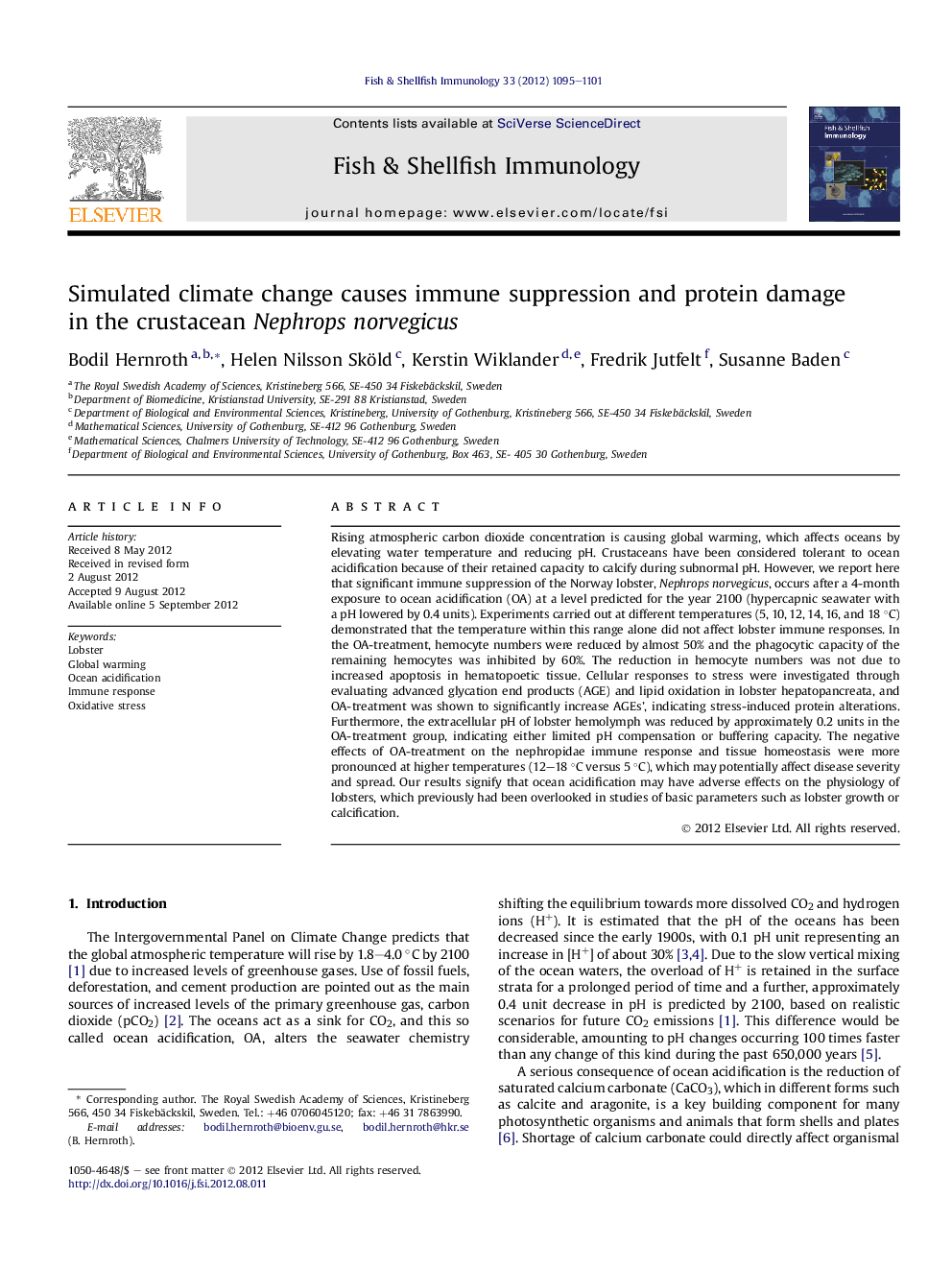| کد مقاله | کد نشریه | سال انتشار | مقاله انگلیسی | نسخه تمام متن |
|---|---|---|---|---|
| 2432323 | 1106790 | 2012 | 7 صفحه PDF | دانلود رایگان |

Rising atmospheric carbon dioxide concentration is causing global warming, which affects oceans by elevating water temperature and reducing pH. Crustaceans have been considered tolerant to ocean acidification because of their retained capacity to calcify during subnormal pH. However, we report here that significant immune suppression of the Norway lobster, Nephrops norvegicus, occurs after a 4-month exposure to ocean acidification (OA) at a level predicted for the year 2100 (hypercapnic seawater with a pH lowered by 0.4 units). Experiments carried out at different temperatures (5, 10, 12, 14, 16, and 18 °C) demonstrated that the temperature within this range alone did not affect lobster immune responses. In the OA-treatment, hemocyte numbers were reduced by almost 50% and the phagocytic capacity of the remaining hemocytes was inhibited by 60%. The reduction in hemocyte numbers was not due to increased apoptosis in hematopoetic tissue. Cellular responses to stress were investigated through evaluating advanced glycation end products (AGE) and lipid oxidation in lobster hepatopancreata, and OA-treatment was shown to significantly increase AGEs', indicating stress-induced protein alterations. Furthermore, the extracellular pH of lobster hemolymph was reduced by approximately 0.2 units in the OA-treatment group, indicating either limited pH compensation or buffering capacity. The negative effects of OA-treatment on the nephropidae immune response and tissue homeostasis were more pronounced at higher temperatures (12–18 °C versus 5 °C), which may potentially affect disease severity and spread. Our results signify that ocean acidification may have adverse effects on the physiology of lobsters, which previously had been overlooked in studies of basic parameters such as lobster growth or calcification.
► Experimental analyses of immune and stress response of Norway lobsters.
► Effects of temperature and CO2 manipulated seawater (mimicking ocean acidification).
► Ocean acidification at temperature 12–18 °C negatively affected immune response.
► Protein disruption indicated that ocean acidification caused oxidative stress.
► Indicating higher susceptibility for diseases under the pressure of climate change.
Journal: Fish & Shellfish Immunology - Volume 33, Issue 5, November 2012, Pages 1095–1101